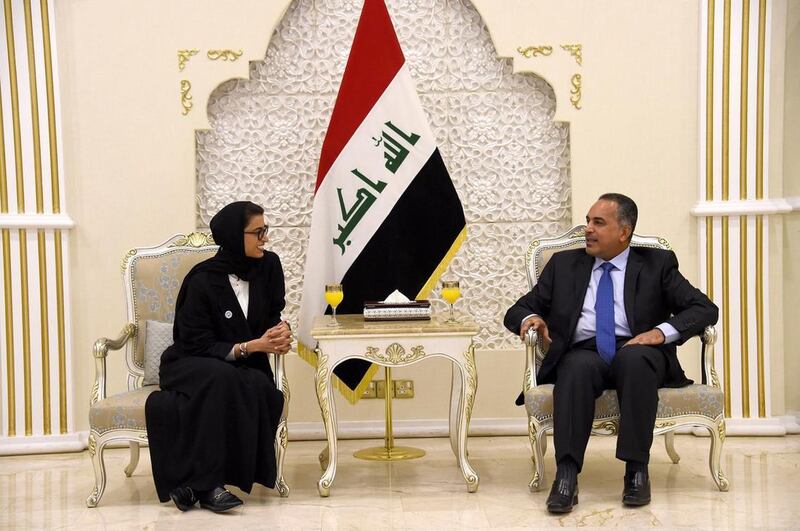For more than eight centuries, the Great Mosque of Al Nuri in Mosul stood as an awe-inspiring symbol of centuries of Iraqi cultural heritage. The call to prayer was broadcast five times a day, for hundreds of years, from the balcony of the mosque’s leaning minaret, whose pronounced tilt earned it the sobriquet Al Hadba, or "the hunchback". Visiting Mosul in the 14th century, the Moroccan traveller Ibn Battuta was struck by the grandeur of the “ancient and prosperous” city and its iconic mosque, first inaugurated 840 years ago. It was a source of immense pride for Iraq, which in 2003 put its leaning minaret on its 10,000 dinar note. In 2014, days before Baghdad was poised to launch a project to stabilise Al Hadba, Mosul was seized by ISIS.
It was from the pulpit of Al Nuri mosque that ISIS leader Abu Bakr Al Baghdadi proclaimed the birth of his so-called caliphate before proceeding to destroy and crush the seat of civilisation and antiquity. One of the last acts of desecration by ISIS before its fighters were driven out of Mosul by the Iraqi army was the destruction of the Great Mosque. In February, donors and investors convened in Kuwait to invest $30 billion towards rebuilding Iraq's infrastructure. On Monday, the UAE followed words with concrete actions by committing $50.4 million to restore the mosque. The National was in Baghdad to witness Noura Al Kaabi, the UAE's Minister of Culture and Knowledge Development, announcing a joint partnership with the Iraqi Ministry of Culture, Unesco and the Organisation of Islamic Cooperation, among others, to push the "wheels of reconstruction, especially for cultural and historic sites".
The UAE is not merely taking a passive role but is an active player in this remarkable effort to reinstate Iraq's most significant cultural monument and will be involved in every stage of the reconstruction. A memorial and a museum will accompany the mosque, reminding future visitors of what was lost – and regained. The work, expected to last for up to five years and produce 1,000 jobs, is fraught with danger. It will take months just to clear the debris and any explosives planted by ISIS. The work will also precipitate the wider reconstruction of Mosul. ISIS sought to break the spirit of Iraq and the region. This collaborative project is a statement of defiance of its extremist ideology. When completed, Al Nuri will tell the world ISIS's message of hatred will never win in the face of true Islamic values, solidarity and determination.





